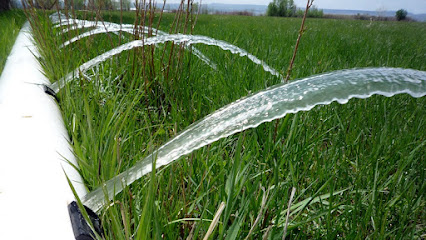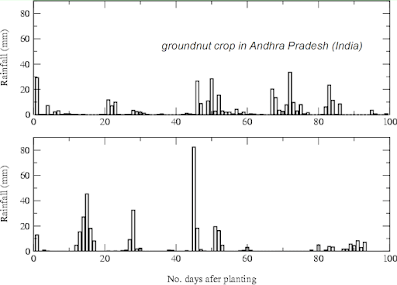Towards an irrigated future: Decolonising water
African nations have adopted a range of innovative solutions to control access to water resources in the face of challenging conditions discussed in this blog. Some have enjoyed more success than others. This post looks at South Africa's system of water permits and, crucially, its impact on the expansion of irrigated agriculture.
The water permit system in South Africa is the legacy of colonial histories. Under Dutch rule from 1652 to 1810, water was seen as a public commodity. Between 1810 and 1925, British rulers replaced this with riparian law which favoured land owners. Therefore, water use was divided along racial lines by the end of the 19th century with most water allocated to the white population for commercial agriculture (Tewari & Oumar, 2013). In response, the National Water Act (NWA) of 1998 attempted to balance between efficient use of water, equity and environmental issues, designating the state as the public trustee of the country's water resources. Through water permits, the NWA allows three methods of water use: (1) Small quantities of water used to satisfy domestic needs is exempt from a permit; (2) Limited amounts of water may be used without a permit, but under exceptional circumstances; and (3) any quantity exceeding a predetermined threshold requires a water permit from users.
However, bureaucratic inefficiencies undermine this system with the processing of permit applications appearing a huge administrative burden. They have failed to redress the inequities of the past, instead favouring mainly whites - of the total 1,200 newly issued permits by 2006, only 2% were non-whites (van Koppen et al., 2011). Furthermore, much of the focus of national water resource planning is on the large-scale users, with little concern for small-scale ones.
I emphasise the role of small-scale farmers because their role in expanding irrigated agriculture is paramount. Evidence shows that small-scale projects are more economically viable with far higher returns on investment than large-scale ones (Villholth, 2013). They also tend to be more effective at delivering the desired outcomes especially to the socio-economic groups most in need (Abric et al., 2011).
Small-scale irrigation
Making up 98% of farmers in South Africa (WWF, 2017), investment in irrigation by smallholders is key to achieving water and food security, but a failure to allocate permits jeopardises this. As their water use is technically illegal, most banks will not finance irrigation schemes to a landowner without a permit. This is worsened as permits are non-tradable/transferrable. This means all types of farmers will have less incentive to commit their finances to water-saving techniques if there is uncertainty over water ownership and succession.
The need for change to a system that favours commercial agriculture is urgent in the face of pressing population and climate issues in Africa that threaten the water-thirsty agricultural sector. Constructing a framework to manage this goes beyond the scope of this post, but I outline two key changes that I think are needed. Firstly, water management should be privatised as market forces can better achieve efficient allocation and avoid potential for corruption. Secondly, permits must be tradable and transferrable to provide the security needed to incentivise investment. This will largely determine the health of South Africa's agricultural sector.



This is a really interesting post that covers so many pressing issues regarding water and food in Africa. I think you've chosen a really interesting case study to illustrate your point as it was something I wasn't aware of. Out of interest, I was wondering whether there has been any resistance to the ineffective system that South Africa has in operation? Also, how does this compare with other countries that use water permits? Is there a country that has used them well?
ReplyDeleteHi Mihir. The water permit system in South Africa plays into the hands of certain groups. In this case, white populations engaged in commercial agriculture. Therefore, it is mainly smallholder famers that have shown resistance to this system, but power dynamics mean their voices are not heard. The water permit system is in place in other African countries like Malawi, Kenya, Uganda and Zimbabwe. However, none of these nations have implemented it particularly well because many of the issues lie within the design of the system. For example, it is too much of a bureaucratic burden to administer water permits for under-resourced governments. Also, many would argue that water resource management is more efficient when left to market forces. Hope this clears things up and do let me know if you have any other questions!
Delete